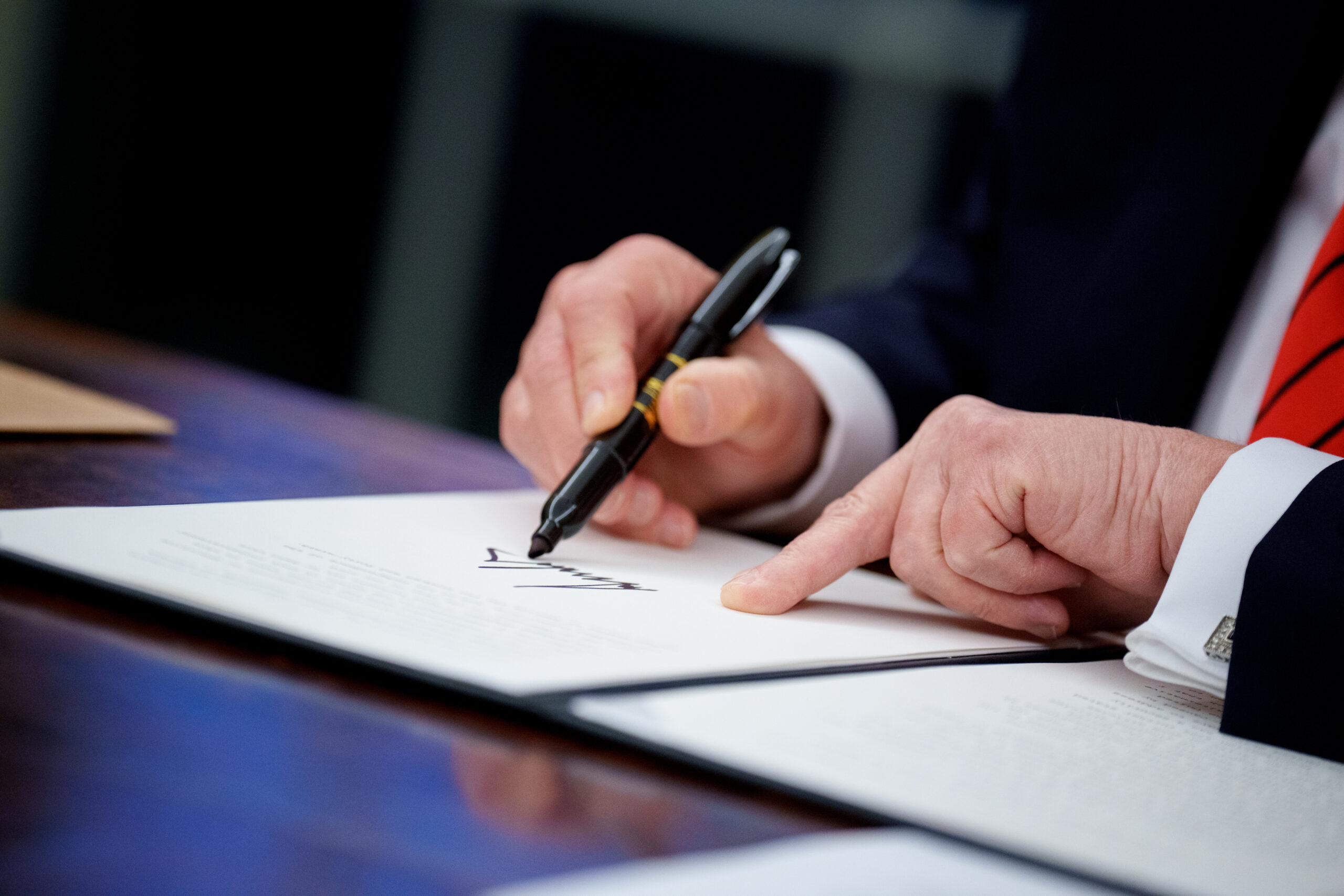- February 20, 2025
Trump’s order to pause anti-bribery law will fuel more corruption in Latin America

Andres Oppenheimer
President Trump’s executive order suspending enforcement of a law prohibiting U.S. companies from bribing foreign officials has drawn little attention compared with his headline-grabbing vows to turn Gaza into a tourist attraction, take over the Panama Canal or buy Greenland. But it should be a major issue because it’s happening, and it could have disastrous consequences.
Trump’s decision to temporarily pause implementation of the 1977 Foreign Corrupt Practices Act (FCPA) is already triggering alarm bells in Latin America. Anti-corruption watchdogs fear it will encourage a massive new wave of corruption in the region.
The FCPA law, passed after several U.S. corporate corruption scandals abroad, has been the main U.S. tool to combat global corruption. The law helped uncover, among many others, the Odebrecht bribery scandal that shook more than half a dozen Latin American governments a decade ago.
According to a White House Feb. 10 statement, Trump’s suspension of FCPA investigations is an effort to “restore America’s competitiveness and security.” The statement said that, because of the law, U.S. companies “are prohibited from engaging in practices common among international competitors, creating an uneven playing field.”
Many U.S. companies have long complained that firms from China and other countries obtain major contracts in the developing world by paying bribes to government officials. The White House statement added that “strategic advantages in critical minerals, deep-water ports and other key infrastructure or assets around the world are critical to American national security.”
At least 31 U.S. companies were under investigation for alleged bribes overseas by the end of 2024. The White House stated that the FCPA law will now be “revised” and replaced by “reasonable enforcement guidelines.”
But Latin American anti-graft groups warn that this new measure, alongside another Trump directive redirecting resources from corporate corruption investigations to foreign drug cartel probes, will only help encourage more corruption across the Americas.
“This will have a very negative impact in Latin America,” says José Ugaz, a Peruvian former prosecutor who handled some of his country’s best-known corruption cases and heads the Proética anti-corruption watchdog group.
“On the one hand, our [Latin American] officials will feel much more at ease to receive bribes, because they know that they won’t be investigated as thoroughly as before,” Ugaz told me. “On the other hand, foreign companies coming here will feel more free to offer bribes.”
Trump’s temporary suspension of the U.S. anti-bribery law comes as a new ranking of corruption perception in 180 countries by Transparency International, a Berlin-based anti-graft group, shows an increase of corruption in many Latin American countries.
The ranking, based on input from 13 think tanks, showed that Denmark, Finland and Singapore are perceived as the world’s most honest countries, and Venezuela, Somalia and South Sudan are seen as the most corrupt.
Luciana Torchiaro, head of Transparency International’s Americas division, told me that “there are very few cases of Latin American countries that have improved in this year’s corruption perception ranking, and several others that score below their historical levels, such as Brazil, Chile, Honduras, Nicaragua and Venezuela.”
Now, with Trump’s order, the region’s corruption levels may get even worse, she said.
Among other things, Trump’s directive may prompt other countries to relax their own anti-corruption laws. European companies will now feel at a disadvantage with their U.S. competitors, and may lobby for watering down Europe’s own anti-bribery rules, anti-corruption activists say.
Trump supporters note that there are other, less draconian U.S. laws aimed at fighting corruption in international business deals, such as the Foreign Extortion Prevention Act, or FEPA, which makes it illegal for foreign officials to seek or receive bribes. But the now partially suspended FCPA law is by far the most effective tool to fight corruption, experts say.
Does Trump truly believe that lifting anti-corruption punishments will make American companies more competitive, and the United States more secure? Or is he simply rewarding rich corporate donors for their huge 2024 campaign contributions?
It’s probably the latter. His executive order, unless reversed by the courts, will encourage greater corruption in Latin America, hurting the region’s economies, weakening democratic institutions and making countries poorer.
Every bribe paid to a government official inflates the cost of government contracts and makes consumers pay more for government services. In addition, bribes help dictators stay in power, because they have more money at hand to buy the loyalty of generals and judges.
A further rise of Latin American corruption will inevitably lead to increased migration, drug trafficking and other national security issues that Trump claims to be combating. The long-term costs of unchecked U.S. corruption will far outweigh any possible short term gains.

